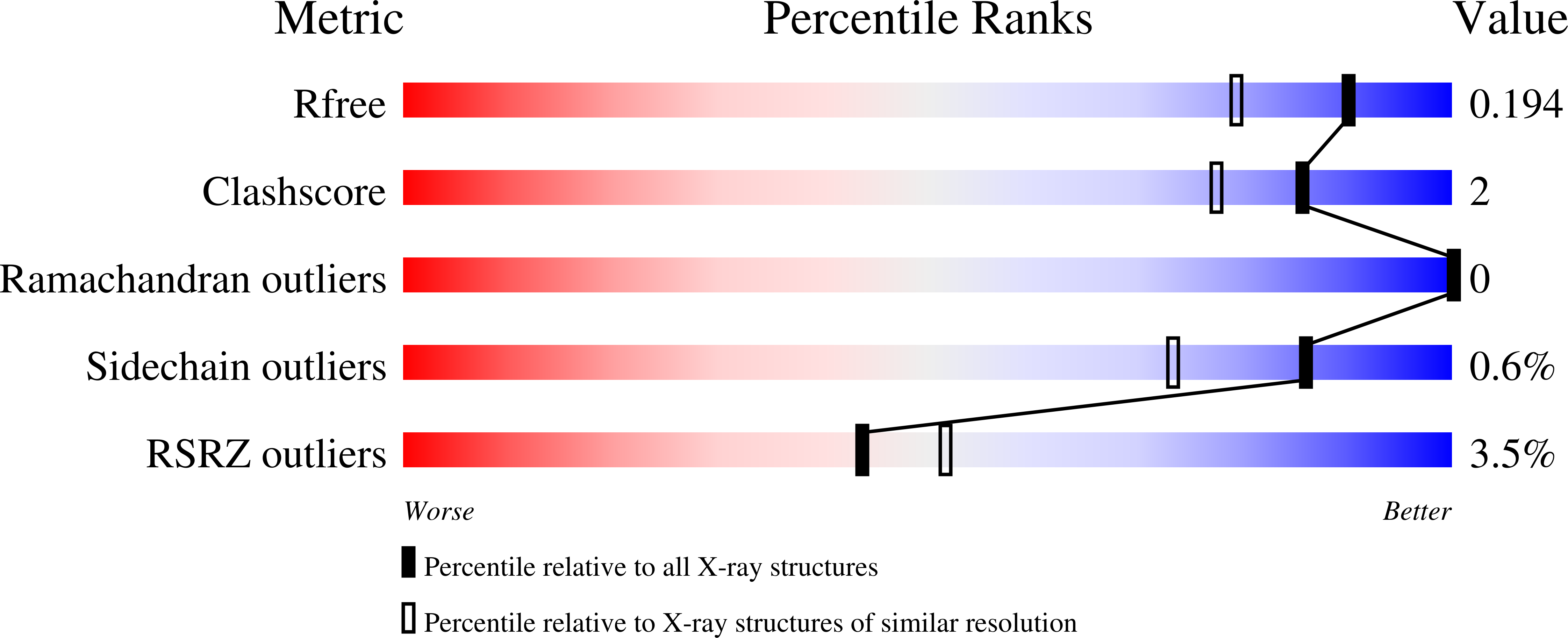Sequencing, Biochemical Characterization, Crystal Structure and Molecular Dynamics of Cellobiohydrolase Cel7A from Geotrichum Candidum 3C.
Borisova, A.S., Eneyskaya, E.V., Bobrov, K.S., Jana, S., Logachev, A., Polev, D.E., Lapidus, A.L., Ibatullin, F.M., Saleem, U., Sandgren, M., Payne, C.M., Kulminskaya, A.A., Stahlberg, J.(2015) FEBS J 282: 4515
- PubMed: 26367132
- DOI: https://doi.org/10.1111/febs.13509
- Primary Citation of Related Structures:
4ZZT, 4ZZU, 4ZZV, 4ZZW, 5AMP - PubMed Abstract:
The ascomycete Geotrichum candidum is a versatile and efficient decay fungus that is involved, for example, in biodeterioration of compact discs; notably, the 3C strain was previously shown to degrade filter paper and cotton more efficiently than several industrial enzyme preparations. Glycoside hydrolase (GH) family 7 cellobiohydrolases (CBHs) are the primary constituents of industrial cellulase cocktails employed in biomass conversion, and feature tunnel-enclosed active sites that enable processive hydrolytic cleavage of cellulose chains. Understanding the structure-function relationships defining the activity and stability of GH7 CBHs is thus of keen interest. Accordingly, we report the comprehensive characterization of the GH7 CBH secreted by G. candidum (GcaCel7A). The bimodular cellulase consists of a family 1 cellulose-binding module (CBM) and linker connected to a GH7 catalytic domain that shares 64% sequence identity with the archetypal industrial GH7 CBH of Hypocrea jecorina (HjeCel7A). GcaCel7A shows activity on Avicel cellulose similar to HjeCel7A, with less product inhibition, but has a lower temperature optimum (50 °C versus 60-65 °C, respectively). Five crystal structures, with and without bound thio-oligosaccharides, show conformational diversity of tunnel-enclosing loops, including a form with partial tunnel collapse at subsite -4 not reported previously in GH7. Also, the first O-glycosylation site in a GH7 crystal structure is reported--on a loop where the glycan probably influences loop contacts across the active site and interactions with the cellulose surface. The GcaCel7A structures indicate higher loop flexibility than HjeCel7A, in accordance with sequence modifications. However, GcaCel7A retains small fluctuations in molecular simulations, suggesting high processivity and low endo-initiation probability, similar to HjeCel7A. Structural data are available in the Protein Data Bank under the accession numbers 5AMP, 4ZZV, 4ZZW, 4ZZT, and 4ZZU. The Geotrichum candidum GH family 7 cellobiohydrolase nucleotide sequence is available in GenBank under accession number KJ958925. Glycoside hydrolase family 7 reducing end acting cellobiohydrolase.
Organizational Affiliation:
Department of Chemistry and Biotechnology, Swedish University of Agricultural Sciences, Uppsala, Sweden.



















